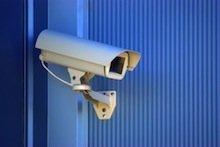of Employees
Workplace Privacy
New Jersey Workplace Privacy Lawyers

Employees give up a certain degree of privacy at their jobs. However, there are limits on what private information your employer can seek or use against you.
Privacy in the workplace is a rapidly developing area of employment law. Our employment attorneys represent employees in a wide range of New Jersey workplace privacy issues.
Privacy of Personal Information When Using Workplace Technology
Many companies monitor employees’ use of company equipment such as laptops, cell phones and tablet devices. For example, your employer might monitor the websites you visit, the emails you send and receive (even from your private email address), or the telephone numbers you dial. Likewise, companies sometimes video record employees, either intentionally or as a result of security measures.
But there are limitations on your company’s right to invade your privacy in these ways. For example, generally your employer needs to tell you about the ways in which it is monitoring you, such as by describing its policy in an employee handbook or another document. There also are some forms of monitoring that are rarely if ever permissible, such as secretly listening to your personal telephone conversations without your consent.
For additional information, we welcome you to contact one of our New Jersey employment privacy attorneys. Our telephone number is (201) 777-2250.
Drug and Alcohol Testing
Some employers require employees to undergo drug and alcohol testing. The testing can be random, or based on a suspicion that an employee is under the influence of drugs or alcohol at work. Either way, there are significant limits on when an employer can require you to undergo drug or alcohol testing. These limits are lower for employees who have jobs in which drugs or alcohol abuse could create a serious safety risk, such as jobs that require driving or the use of heavy equipment or machinery.
Even when drug or alcohol testing is permissible, your employer should take steps to avoid false positive results and to protect your medical privacy including information regarding prescription medication that might be revealed during the test.
Depending on the circumstances, anti-discrimination laws can require an employer to offer drug rehabilitation, at the employer’s expense, to an employee who is addicted to drugs or alcohol. As a result, even if an employee has a drug or alcohol test which comes back positive, it could be unlawful for an employer to fire him or her. However, employers can fire employees for misconduct or misbehavior that is caused by drug or alcohol abuse.
For more information about employee drug testing, you can read the following article written by one of our New Jersey workplace privacy lawyers: When Can a Private Company Require Random Drug Testing in New Jersey?
Medical Marijuana
New Jersey law provides substantial protection to employees who use medical marijuana outside of the workplace. Additional details are available on our medical marijuana employment rights page.
Privacy of Medical Information
Yet another area of New Jersey workplace privacy law relates to medical records and information. This issue often comes up when an employee provides medical information to the employer when requesting sick time, a medical leave under the Family & Medical Leave Act (“FMLA”), or a reasonable accommodation for a disability.
Generally, employers are required to keep your medical information separate from your personnel file, to provide your medical information to other employees only to the extent necessary, and to take other measures to limit the risk that the information will end up in the wrong hands.
Privacy on Social Media
A relatively new area of employment law privacy relates to social media, such as Facebook, Twitter and LinkedIn. Some courts have ruled that employers cannot fire employees for information they posted on social media websites. Those legal disputes often turn on the specific facts of the case, such as whether the information was posted publicly or only to your “friends,” was work-related or personal, defamatory, or violated a company policy.
Similarly, many states, including New Jersey, prohibit employers from asking employees to provide their social media passwords to their supervisors because they consider it an unwarranted invasion of privacy.
Social media also comes into play for employees who enter into non-compete and trade secret agreements. For example, depending on how the agreement is written, your employer might be able to argue that you are not permitted to contact some or all of your business contacts on LinkedIn after you leave the company and begin another job. Similarly, if you developed your LinkedIn network during your work hours or as part of your job duties, your employer could even try to claim the connections belong to the employer instead of you.
Contact a New Jersey Employment Privacy Attorney Today
Workplace privacy issues are often both highly complex and deeply personal. We are sensitive to those concerns. We frequently advise employees about their workplace privacy rights in New Jersey and represent individuals in legal disputes regarding violations of those rights.
To schedule a consultation with one of our employment law attorneys please feel free to contact us online or call us at (201) 777-2250.








